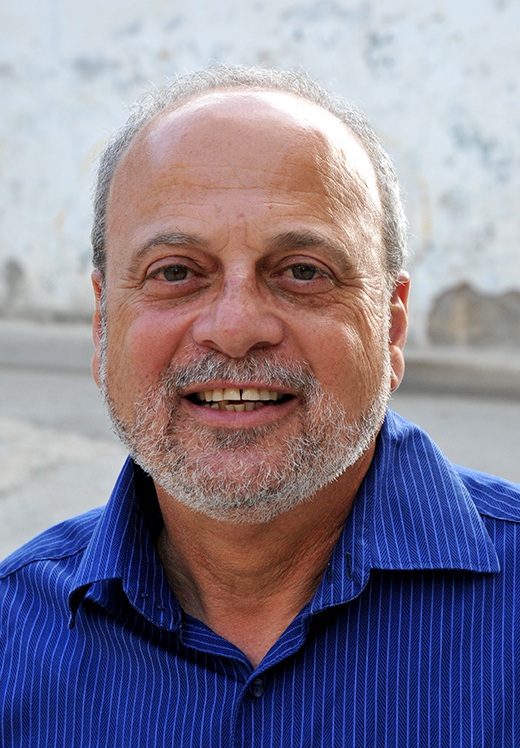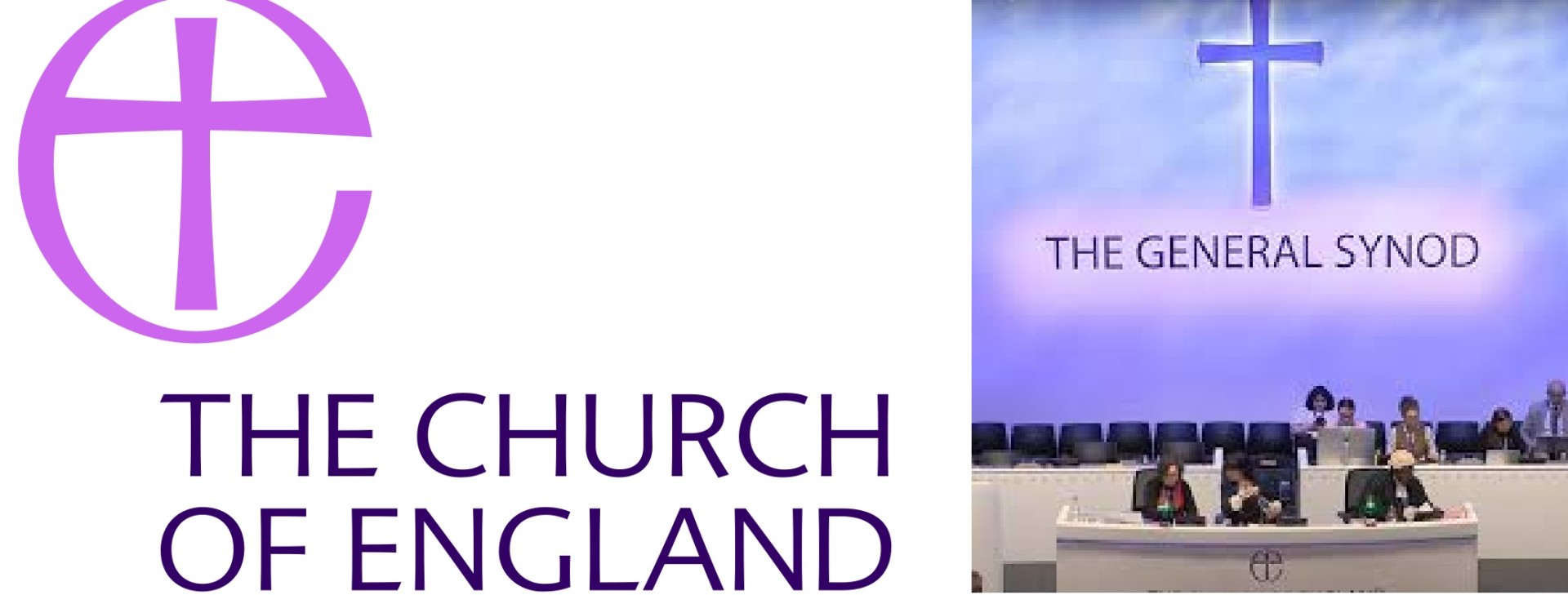
Previous War in the Middle East Is Not Religious but a Battle for Hegemony

Reprint from Christian Times
PALESTINIAN Christians are “grieved and disappointed” by the decision not to schedule a debate during the General Synod’s sessions in York, which begins on Friday.
A letter to the Synod’s secretary-general, William Nye, from the Christian Palestinian organization Kairos Palestine, sent late last month, says: “Neither history nor future generations will forgive the silence of the Church.”
The letter refers to a Carlisle diocesan synod motion that has not been chosen as an item of business. The motion, carried in 2021 and endorsed by the diocese of Sheffield in 2024, calls on the Church’s investment bodies to review their policies, and to ensure that there is no investment in “any entity or corporation with a persistent, on-going, and direct business involvement in severe human rights violations or violations of international law as part of Israel’s military occupation”.
In an interview after her return from a visit to Jerusalem and the occupied West Bank, the Bishop of Gloucester, the Rt Revd Rachel Treweek, called the decision not to timetable the debate “quite shocking” (News, 6 June).
Criticizing the decision, the letter asks: “If the Church cannot find the time or courage to debate justice for Palestinians now, amidst such devastation, when will it?”
The Rector of St Andrew’s, Ramallah, in the West Bank, the Revd Fadi Diab, told the Church Times this week that “when the General Synod claims it does not have time to discuss the motion, it is effectively saying that Palestinians — and Palestinian Christians in particular — do not matter. It communicates that our suffering, our displacement, and our cries for justice are not worth the Church’s time.”
The decision not to debate the motion was “not a neutral act”, Fr Diab said, but an “act of abandonment.
“In moments like these, silence is not an option. It is a form of complicity. When genocidal aggression is not a priority for the Church to debate, the Church is in deep mess.”
A new World Vision report, The Unseen Crisis, charts the deteriorating situation in the West Bank. The report, published last week, says that the percentage of households earning below the minimum required to cover basic needs rose from 21 percent in 2023 to 74 per cent in late 2024.
Nearly two-thirds of families lost income as a result of revoked work permits, wage cuts, or closed businesses, the report says. It also points to the introduction of new Israeli military checkpoints as impeding the supply of aid into the West Bank.
Seventy per cent of children surveyed said they were skipping meals frequently, and 37 percent of village councils reported falling school attendance “largely due to economic hardships and security concerns”.
Among the nine percent of the families who reported that a child had dropped out of school in the past year, the most common reasons cited were fear, unaffordable expenses, and the impossibility of attending school regularly because of restriction of movement”.
On Thursday of last week, the Second Church Estates Commissioner, Marsha de Cordova MP, spoke of attacks on the Christian community in the West Bank “by Israeli settlers and soldiers”, and outlined the support that Anglican organisations were giving to institutions in the area.
In response to a question from the Labour MP Douglas McAllister, she said that the Church “can certainly do more and the Church must do more. The Church must continue to be a voice for the voiceless, and Gazan children are the voiceless.
“I encourage the Government to enable medical evacuations, heed calls for the creation of a Gaza family-visa scheme, and take concrete steps to ensure Israel allows vital medical aid into Gaza,” she said.
The Conservative MP Sir Edward Leigh referred to attacks by settlers on Taybeh, a predominantly Christian village in the West Bank, late last month. On Tuesday, it was reported that church leaders in Taybeh had made a joint statement decrying vandalism of a Christian cemetery the previous day. Settlers also reportedly set alight land near an ancient church.
“There is a continuing pattern of crops being destroyed and outposts being set up, and it is happening all over the West Bank. This is outrageous racial cleansing, deliberately designed to prevent a two-state solution and to drive out the people who have tended their crops there for 2000 years,” Sir Edward said last week.
He asked whether the Church of England would “call out this outrage every day of the week”. Ms de Cordova joined him in condemning the attacks. “If we are all going to be the hands and feet of Jesus, we have to speak out when we see such atrocities happen,” she said.
Two days later, on Saturday, 29 activists were arrested outside Parliament, including an 83-year-old priest, the Revd Sue Parfitt, for supporting the banned group Palestine Action. She told reporters that the Government’s decision to proscribe Palestine Action, making support for it illegal, was “a very dangerous move that has to be challenged”.


تكافح مجلة “ملح الأرض” من أجل الاستمرار في نشر تقارير تعرض أحوال المسيحيين العرب في الأردن وفلسطين ومناطق الجليل، ونحرص على تقديم مواضيع تزوّد قراءنا بمعلومات مفيدة لهم ، بالاعتماد على مصادر موثوقة، كما تركّز معظم اهتمامها على البحث عن التحديات التي تواجه المكون المسيحي في بلادنا، لنبقى كما نحن دائماً صوت مسيحي وطني حر يحترم رجال الدين وكنائسنا ولكن يرفض احتكار الحقيقة ويبحث عنها تماشيًا مع قول السيد المسيح و تعرفون الحق والحق يحرركم
من مبادئنا حرية التعبير للعلمانيين بصورة تكميلية لرأي الإكليروس الذي نحترمه. كما نؤيد بدون خجل الدعوة الكتابية للمساواة في أمور هامة مثل الإرث للمسيحيين وأهمية التوعية وتقديم النصح للمقبلين على الزواج وندعم العمل الاجتماعي ونشطاء المجتمع المدني المسيحيين و نحاول أن نسلط الضوء على قصص النجاح غير ناسيين من هم بحاجة للمساعدة الإنسانية والصحية والنفسية وغيرها.
والسبيل الوحيد للخروج من هذا الوضع هو بالتواصل والنقاش الحر، حول هويّاتنا وحول التغييرات التي نريدها في مجتمعاتنا، من أجل أن نفهم بشكل أفضل القوى التي تؤثّر في مجتمعاتنا،.
تستمر ملح الأرض في تشكيل مساحة افتراضية تُطرح فيها الأفكار بحرّية لتشكل ملاذاً مؤقتاً لنا بينما تبقى المساحات الحقيقية في ساحاتنا وشوارعنا بعيدة المنال.
كل مساهماتكم تُدفع لكتّابنا، وهم شباب وشابات يتحدّون المخاطر ليرووا قصصنا.